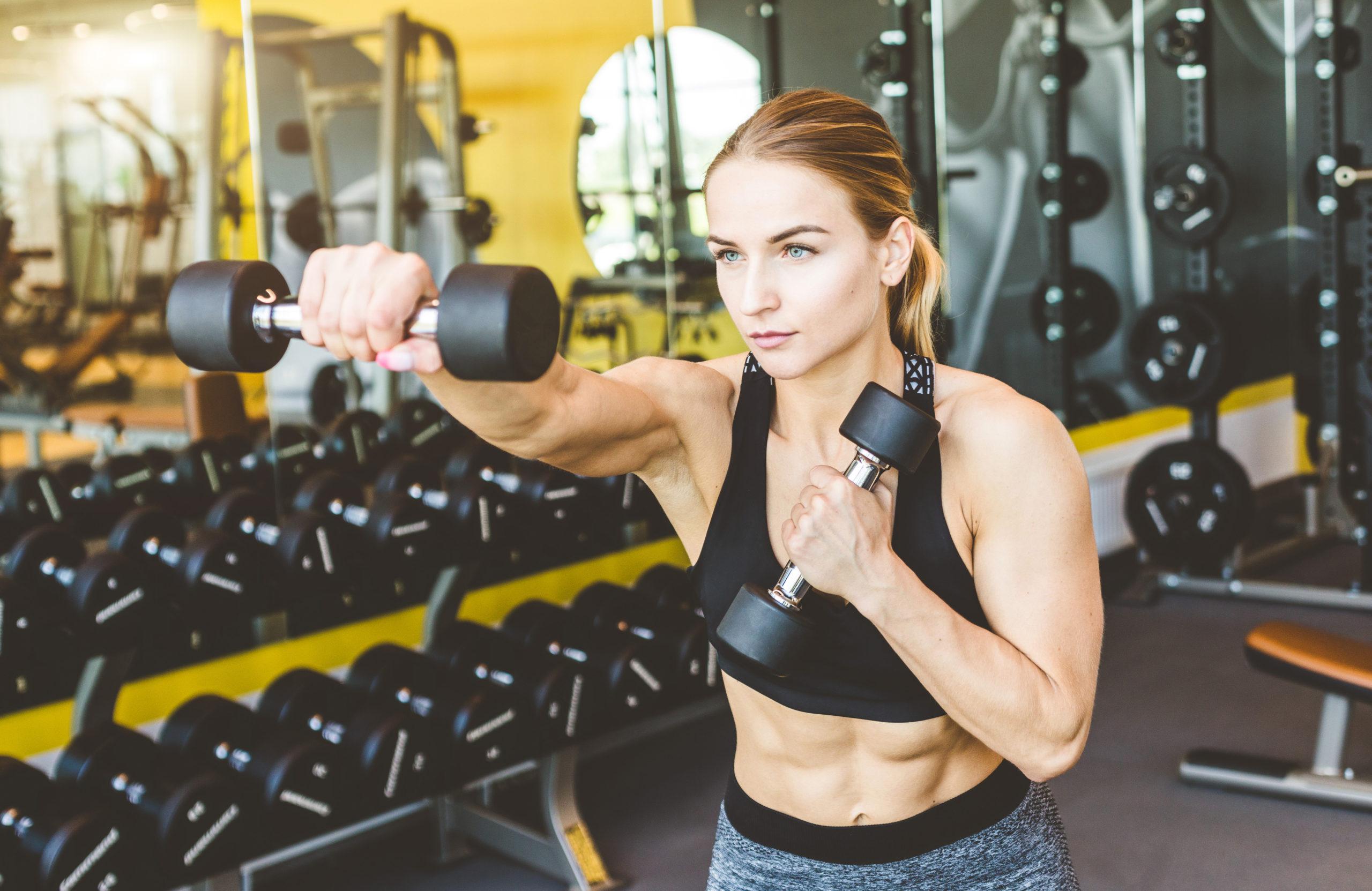Pre-Workout Nutrition: What to Eat Before a Workout
Fitness Tips
Nutrition
Dec 07, 2020 • 7min read
You want to make the most out of each and every workout, and that means fueling your body before you hit the gym. What pre-workout nutrition will help you smash your fitness goals and transform your body? Perhaps you’ve heard that it’s better not to eat at all before you work out or that eating the wrong things will cause stomach issues. This article will answer your questions on what to eat before you work out. To start, let’s look at how your body uses different types of nutrients for fuel.
Introducing Macronutrients
Before you can decide what’s good to eat before a workout, it helps to understand what your body needs to perform its best. Have you ever heard one of your friends brag about eating the right amount of “macros?”
The term “macros” is one you’re likely to hear around the gym and in fitness circles. It refers to the three primary macronutrients: carbohydrates, proteins, and fats. Your body can convert each of these macros into energy.
How much of each type of macro do you need? That depends on your particular fitness goals. Someone looking to lose weight will need a different macro balance than someone looking to build muscle, and both those people will have a different macro balance than someone training for a marathon.
Introducing Carbohydrates
Carbohydrates offer a fast and easy type of energy for your body and brain. When you eat a carb-heavy meal, your body converts the carbs into glucose, a type of sugar, which it can then use for fuel. Glucose is perfect for short, explosive workouts, as well as, long, endurance workouts. That’s why it’s common for endurance athletes to “carbo-load” the day before a competition or before an especially challenging workout. Excess carbs can also be stored in your liver and muscles as glycogen.
Introducing Fats
Fats can come in healthy forms like nuts and avocado or unhealthy forms like those devilishly divine brownies your mother makes. Either way, fat offers a large amount of energy for your body to use. It should be noted, however, that it takes a while for your body to absorb and process fats; your body will mostly use your fat stores rather than newly ingested fat to help fuel your workout. Your body prefers to use glucose before tapping into your fat stores, which is why fat burning tends to happen during longer, more moderate workouts that require a lot of energy over time.
Introducing Protein
Protein is made up of amino acids, the building blocks of your muscles. It can also be repurposed by the body for energy when other sources, like glucose and fat, run low. This is why the best endurance athletes in the world – like marathoners and cyclists – tend to have relatively little muscle mass. Most athletes and exercisers would prefer not to lose muscle mass. That’s why it’s important to give your body enough carbs and fats before you show up at the gym. This way, it doesn’t gobble up your muscles for fuel during your next exercise session.
To Eat or Not to Eat Before a Workout
You may have friends who swear by fasting before a workout. You may have also heard that your body will burn more fat if you don’t eat before your workout. What’s the truth about pre-workout fasting?
Research has shown that participants who exercise before eating do tend to rely more on the breakdown of fat for energy than carbohydrates. This makes sense. If a person doesn’t eat before working out, then there won’t be much glucose for their body to use for energy.
These results have led to the common belief that pre-workout fasting will help exercisers lose more weight than those who grab a snack before jumping on a treadmill. However, there is little evidence to back up this theory. In fact, studies have shown there is no difference in fat loss in women who ate before a workout and those who fasted.
So, what does that mean for your pre-workout nutrition?
Most fitness experts recommend that you go with your personal preference. If you like to work out first thing in the morning, you might not have time to fit in breakfast. Some exercisers feel better working out on an empty stomach regardless of the time of day, while others feel weak and lethargic without a snack before they hit the gym. Experiment with what works best and feels best for you.
If you do decide that eating before a workout is right for you, here’s what you need to know.
When to Eat Before a Workout
As you are considering what to eat before a workout, it’s also essential to consider when to eat before a workout. Again, a lot depends on personal preference, and it’s useful to experiment with an eating and workout schedule that works best for you. That said, there’s definitely a point in time when it’s not a great idea to start gobbling down a big meal.
It takes time for your body to digest food. As soon as you begin exercising, your body will begin moving blood away from your midsection and out to your limbs to feed necessary oxygen to your muscles. (If you’ve ever noticed that your stomach becomes cold after a long endurance workout, that’s why.)
If you eat too soon before your workout, you could develop a queasy, unsettled stomach. No one wants that. Here are a few good rules of thumb to follow:
- Two to three hours before your workout, you can eat a full meal
- An hour to 45 minutes before your workout, you can eat a snack
- Don’t eat anything substantial 30 to 45 minutes before your workout
- Stay hydrated. It’s always a good idea to drink water before, during, and after a workout
What to Eat Before a Low-Intensity Workout
Are you planning on a leisurely stroll around the block, an easy swim, or a recovery workout? For a low-intensity workout, you don’t necessarily need to eat anything to boost your workout. Your body already has plenty of stored energy it can use. If you do want to grab a quick snack, focus on high-fat and high-protein snacks. Some good options are:
- A handful of nuts
- Whole grain toast and peanut butter
- Hard-boiled eggs
What to Eat Before a Workout to Build Muscle
Are you planning a weightlifting session or a moderate cardio workout for the day? The best way to fuel up for this type of workout is to eat a meal or snack that blends together fats and carbs. You’ll want to give yourself some glucose for fast energy, as well as, fats to keep you going at the end. Try some of these suggestions:
- Oatmeal with walnuts and fruit
- Chicken and whole grain rice
- Avocado on whole-wheat toast
If you are specifically looking to build muscle, your post-workout meals are also crucial. Make sure you eat plenty of protein to help rebuild your muscles after each tough workout.
What to Eat Before a Long Cardio Workout
Are you planning on a long endurance run, bike ride, or swim? Stock up a lot of calories in your body to help fuel you through the miles. This is when it’s time to carb load, though don’t focus exclusively on carbs. Add some fats and proteins to give you a good balance. Some good meal options are:
- Peanut butter and jelly sandwiches
- Pasta dish with meat of your choice
- Sweet potatoes, avocado, and scrambled eggs
What About Pre-Workout Supplements?
Many pre-workout supplements promise to give you better results as you’re exercising. These supplements often include ingredients like caffeine, creatine, and beta-alanine, which can improve the way you feel during a workout. For example, supplements can increase blood flow, heart rate, and focus. That may make you feel more energized and alert, giving you an extra edge as you’re working out.
That being said, supplements shouldn’t replace a well-balanced and nutrient-dense diet. If your diet is poor, supplements won’t be able to mask your caloric shortcomings. Instead, consider supplements as something that can give you a boost on top of a great nutritional plan.
Also, supplements aren’t regulated as strongly as food. It’s easy to find “proprietary blends” filled with mystery ingredients. If you decide to take a pre-workout supplement, do your homework and make sure you use a well-regarded supplement with clearly listed ingredients. You may want to ask some of the trainers at your gym what they would recommend.
What’s Good to Eat Before a Workout?
At the end of the day, when it comes to pre-workout nutrition, a lot of it depends on your personal preference. If you are new to exercising, it’s a good idea to experiment with different meal options and meal sizes at different lengths of time before your workout. Over time, most exercisers fall into an eating groove that is right for them. Just make sure you are fueling your body enough to perform at your peak. That means eating healthy, nutritious meals throughout the day and especially after your workout. Find an EōS near you.




